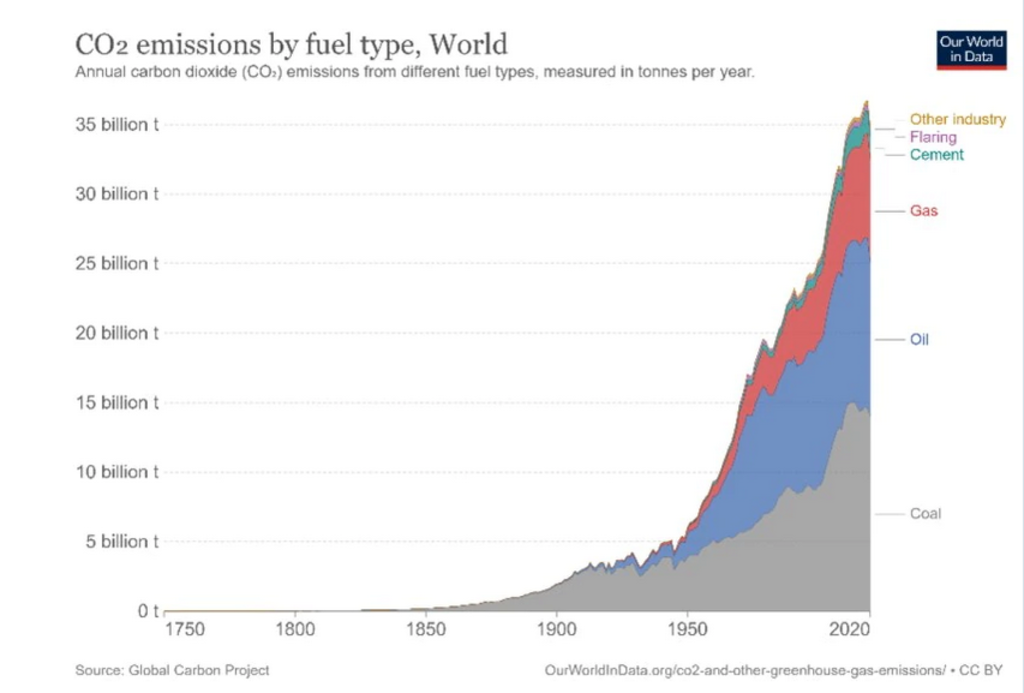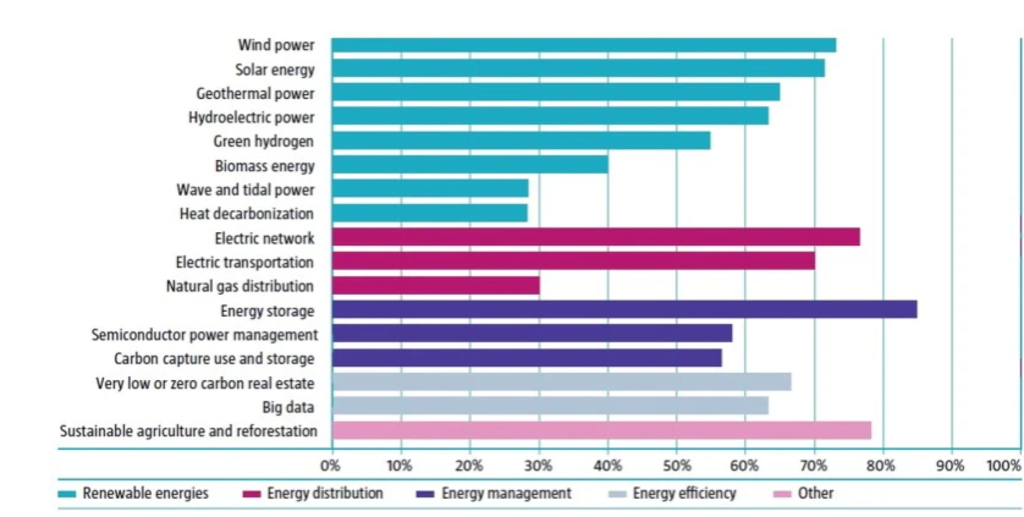Finding alternatives to fossil fuels is essential if the world is to combat global warming. The current reliance on fossil fuels led by coal, oil and gas cannot be understated, as it used to supply 80% of the world’s energy.1 The energy sector subsequently generates about three-quarters of all greenhouse gases and is by far the largest contributor to global warming.2

Coal, oil and gas dominate emissions by fuel type. Renewables except for biomass have virtually zero emissions.
Source: Our World in Data, 2020
But there are alternatives which are growing in use, particularly as the wind and solar energy sector acquires the scale it needs to be able to reliably supply electricity on the current scale of coal. The five primary alternatives to fossil fuels are renewable energy, nuclear power, hydrogen, biomass, and geothermal energy.
Renewable energy is defined as power derived from natural sources that can replenish themselves, such as wind, solar, tidal or hydroelectric. All are theoretically infinite, unlike fossil fuels which will run out at some point. Its main drawback is that if the wind doesn’t blow, the sun doesn’t shine or water levels are low, then the energy created can fall to zero.
Nuclear power is derived from splitting the uranium atom in a controlled way in a power station, creating nuclear fission. As no conventional fuel is burnt, nuclear power has zero greenhouse gas emissions. Its main drawbacks are the highly limited supplies of uranium, the dangers of accidents, and the fact that radioactive waste is difficult to dispose of.
Hydrogen is produced through the electrolysis of water into its constituent parts of hydrogen and oxygen. The electrolysis requires energy to work, and if this power comes from renewables (green hydrogen), then its only emissions are water vapor. If the energy comes from fossil fuels (gray or blue hydrogen) then it is less useful for cutting emissions.
Biomass is biological material that are either living or decaying, led by wood, plant, forest residues and compost material. Some crops such as rapeseed are specifically grown as biofuels. Many coal-fired plants are being converted to biomass in order to reduce emissions. Its main drawback is that burning biomass still produces greenhouse gases.
Geothermal power is harnessed from the Earth’s natural sources of heat, led by volcanic activity. It is the source of 30% of all electricity power in Iceland, which taps into thermal springs heated by molten rock lying thousands of meters below the surface. Its main drawback is that it is restricted to areas with volcanic sources.

Investor interest in alternatives to fossil fuels is led by wind and solar power.
Source: Robeco Global Climate Survey 2021.

Creating returns that benefit the world we live in
Collectively, non-fossil fuel power is often known as ‘clean energy’, though some forms of it are cleaner than others. Nuclear, for example is clean but occasionally dangerous, as the Chernobyl and Fukushima nuclear power plant disasters showed, and there remains the issue of how to safely dispose of the radioactive waste.
Use of fossil fuel alternatives has grown exponentially in recent years, accounting for 23.2% of all energy sources for power generation in 2020.3 Hydrogen is particularly seen as an alternative fuel for heavy transport such as ships, trucks and even aircraft, though it relies on existing supplies of energy to be created. Tidal projects have largely been shelved as being too expensive.
Smart Energy I GBP
- performance ytd (31-1)
- 3.76%
- Performance 3y (31-1)
- 12.17%
- morningstar (31-1)
- SFDR (31-1)
- Article 9
- Dividend Paying (31-1)
- No






















